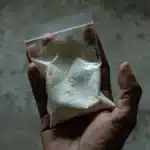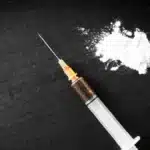Barbiturate Addiction: Symptoms, Effects, and Treatment
Barbiturates are a class of drugs that depress the central nervous system (CNS) and are used to treat anxiety, insomnia, and seizures. They can be highly addictive, leading to physical dependence, tolerance, and withdrawal symptoms.
When a person takes barbiturates repeatedly or in higher doses, their body may develop a tolerance to the drug, requiring them to take more to achieve the same effects. Over time, this can lead to physical dependence, where the body relies on the drug to function normally.
Recovery from barbiturate addiction is possible but requires commitment, support, and professional help. If you or someone you know is struggling with barbiturate addiction, it’s essential to seek help as soon as possible.
Treatment Services
Arkansas offers several treatment services for barbiturate addiction, including inpatient treatment, outpatient treatment, medication-assisted treatment (MAT), behavioral therapies, and support groups.
The inpatient program provides 24-hour care in a safe environment. On the other hand, the outpatient program allows people to get treatment while continuing to live at home.
MAT involves using medications to lessen withdrawal symptoms and cravings. Behavioral therapy helps people replace negative behaviors and thought patterns with positive ones. Support groups provide peer support and encouragement to those in recovery.
Many other resources are also available to those dealing with addiction to barbiturates. The Arkansas Department of Human Services Division of Behavioral Health Services provides information on treatment programs and services throughout the state.
Additionally, local hospitals, clinics, and community organizations may offer treatment and support services for those with addiction.
You can also contact professionals at The Haven Detox-Little Rock to get treatment and support services for barbiturate addiction.
Key Takeaways
Barbiturate addiction is a serious and potentially dangerous condition that occurs when a person becomes dependent on barbiturates. Here is what this article discusses:
- Addiction to barbiturates includes a number of physical and mental symptoms.
- Causes of barbiturate addiction may include family history, the addictive potential of the drug, environmental factors, and more.
- Risk factors may include easy access to the drug, peer pressure, and lack of supervision.
- Addiction to barbiturates can take a toll on different aspects of a person’s life, such as health, employment, safety, and relationship.
- Treatment options may include detox, residential treatment, and therapies.
Remember, there is no shame in seeking help, and you are not alone. The Haven Detox-Little Rock can help overcome the effects of addiction. Contact us at (501) 271-3342!
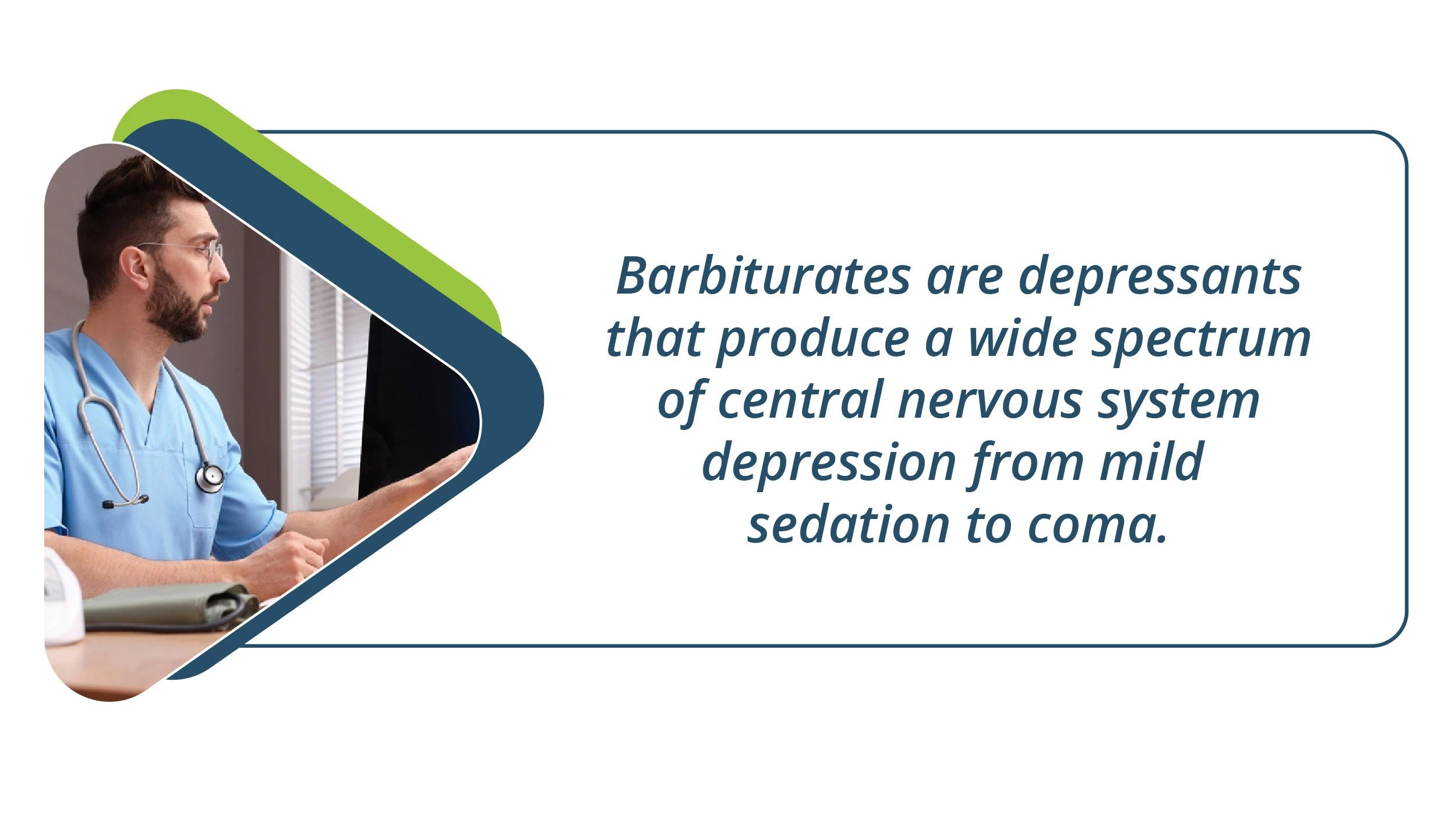
Symptoms of Barbiturate Addiction
Barbiturate addiction is a severe condition with various physical and mental symptoms. Heavy use of barbiturates can lead to physical dependence, tolerance, and withdrawal symptoms, which can be dangerous.
Therefore, it is essential to seek professional help if you or someone in your family is experiencing symptoms of barbiturate addiction.
When to Seek Treatment
If you are concerned that you or a loved one may have a barbiturate addiction, there are several symptoms to look out for that may indicate the need for treatment.
These symptoms include:
- Mood swings
- Drowsiness and lethargy
- Memory problems
- Slurred speech
- Impaired coordination
- Continued use despite negative consequences
- Cravings for drug
- Social isolation
- Loss of control over the use
- Risky behavior, such as unsafe sex or driving under the influence
- Neglecting responsibilities at home, school, and work
If you or someone in your social circle is experiencing these symptoms, it may be time to seek treatment. Contact a healthcare provider for guidance on the most suitable treatment plan.

If a Loved One Needs Help
If a loved one needs help for barbiturate addiction, there are several things you can do to support them:
- Let your loved one know you are concerned about their well-being and are there to support them.
- Learn about barbiturate addiction, its effects, and available treatments.
- Encourage your loved one to seek help from a treatment center.
- Offer emotional support to your loved one during their recovery process.
- Assist your loved one in finding and accessing appropriate treatment options for their barbiturate addiction.
- Avoid enabling behaviors, such as avoiding providing money or other resources that may be used to obtain barbiturates.
- Take care of your own emotional and mental health needs during this time.
Remember that addiction is a complex issue that requires professional treatment and support. Encouraging your loved one to seek help is the first step toward recovery.
Causes of Barbiturate Addiction
Barbiturate addiction can have multiple causes, including:
Family History
Research has shown that addiction can run in families, and there may be a genetic component to addiction. If someone has a family history of addiction, they may be more prone to developing an addiction to barbiturates.
Addictive Potential
Barbiturates can be highly addictive due to their ability to produce feelings of relaxation and euphoria. With regular and heavy use, tolerance can develop, leading to a high risk of developing an addiction.
Environmental Factors
Environmental factors such as stress and trauma can also lead to the onset of addiction. For example, someone who experiences high levels of stress may turn to barbiturates as a way to cope, leading to addiction.
Polysubstance Abuse
People who use multiple drugs may be more likely to develop an addiction. For example, mixing barbiturates with alcohol or opioids can increase the risk of addiction.
Therefore, if you or someone you care about is struggling with barbiturate addiction, seeking professional help is vital. It will help address the root causes and develop a suitable treatment plan.
Mental Health
People with mental health issues such as anxiety or depression may be more likely to misuse barbiturates as a form of self-medication. In addition, long-term use of barbiturates can lead to the worsening of existing mental health issues.
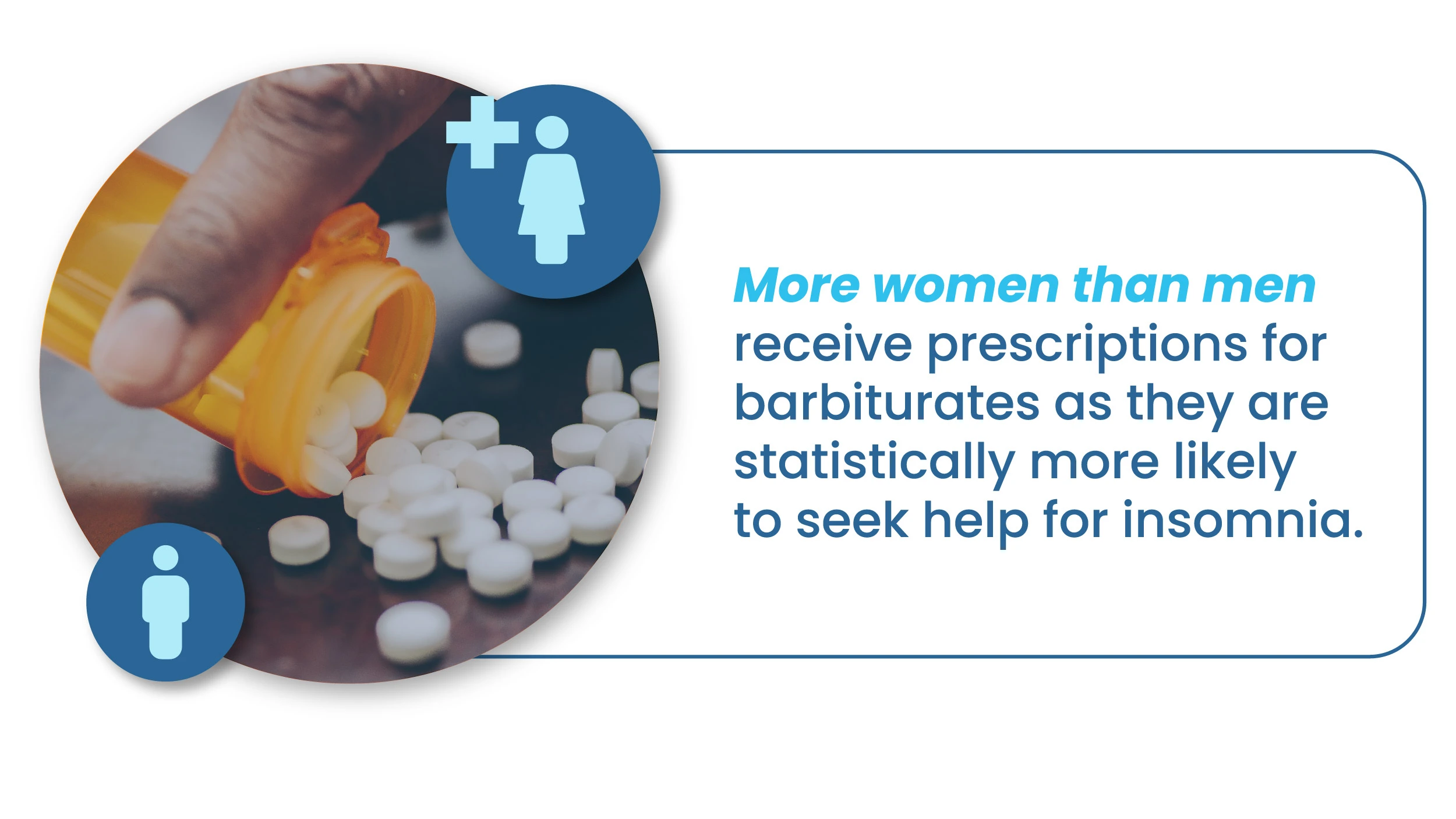
Risk Factors of Barbiturate Addiction
Barbiturates can cause dependence and addiction when misused or without medical supervision. Several risk factors may lead to the development of barbiturate addiction, including:
Drug Access
Barbiturates are classified as Schedule II or III controlled substances, which means they have a high potential for abuse. As a result, they are available only by prescription and are subject to strict regulations.
However, some people may obtain them illegally by buying them on the street or stealing them from someone with a prescription.
Easy access to these drugs can increase the chance of abuse and addiction, as it removes the barriers that would typically prevent people from obtaining them.
Peer Pressure
Peer pressure can have a strong impact on a person’s decision to use drugs. Those who regularly interact with those who use barbiturates may be more likely to experiment with them themselves, especially if they feel pressure to fit in or be accepted by their peers.
This is especially true for teens, who may be more prone to peer pressure and lack the experience or knowledge to make informed decisions about drug use.
Lack of Supervision
People who take barbiturates without medical supervision are at higher risk of developing an addiction. Some people may misuse or abuse these drugs to cope with stress, anxiety, or other emotional issues, without seeking proper monitoring.
Barbiturate use without supervision can lead to addiction, as individuals may continue to use the drugs to self-medicate, even as they experience health problems.
Therefore, by understanding the potential risk factors, individuals can take steps to mitigate their risk and seek appropriate treatment if necessary.
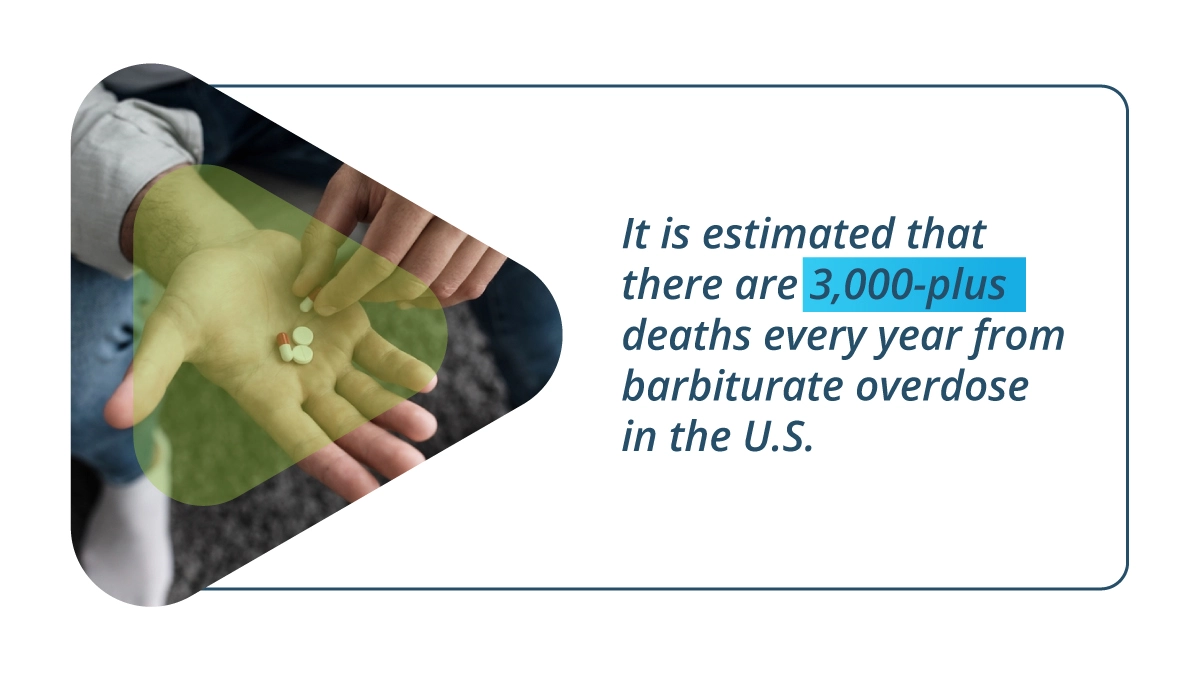
Effects of Barbiturate Addiction
Here are some potential effects of barbiturate addiction:
Effects on Safety
One of the major effects of barbiturate addiction is on safety. Barbiturates can impair a person’s cognitive and motor functions, leading to accidents and falls. This is particularly concerning in older adults who may already be at a higher risk of falls.
In addition, barbiturates can cause drowsiness and fatigue, affecting a person’s ability to drive safely. This can lead to car accidents or other dangerous situations that put the person and others at risk.
Effects on Relationships
Barbiturate addiction can also strain relationships with family and friends. The person may become isolated, withdraw from social activities, neglect their responsibilities, and experience mood swings or irritability.
This can cause a breakdown in communication and trust, leading to strained or broken relationships. In some cases, the person may also engage in risky behaviors or activities that put themselves or others in danger, further damaging relationships.
Effects on Health
Perhaps the most concerning effect of barbiturate addiction is on health. These drugs can have serious health consequences, including low blood pressure, irregular heart rate, respiratory depression, coma, and even death.
Long-term use can lead to chronic health problems such as liver and kidney damage, cognitive impairment, and an increased risk of infections.
Barbiturates can also interact with other medications, such as antidepressants or opioids, leading to dangerous drug interactions.
Therefore, It’s important for those struggling with addiction to seek help and support from medical professionals, therapists, and support groups. With the right treatment and support, it is possible to overcome barbiturate addiction and live a healthier, more fulfilling life.
Effects on Employment
Another potential effect of barbiturate addiction is on employment. Barbiturates can decrease productivity and increase absenteeism, which can lead to job loss or difficulty finding and maintaining employment.
The financial strain of addiction can also cause additional stress and affect a person’s ability to meet their financial obligations, further impacting employment and overall well-being.
Treatment For Barbiturate Addiction
The most commonly used treatment options for barbiturate addiction may include the following:
Medical detox for barbiturate addiction typically involves gradually tapering off the drug while managing withdrawal symptoms. This process is usually done in an inpatient setting under close medical supervision to ensure the safety and comfort of the patient.
During the detox process, patients may receive medications to manage symptoms such as anxiety, insomnia, and seizures. The specific medications used will depend on the person’s unique needs and medical history.
It’s important to note that detox is only the first step in treating barbiturate addiction. After detox, patients should receive ongoing treatment to address the root causes of their addiction and learn healthy coping skills for preventing relapse.
If you or anyone in your family or friends is struggling with barbiturate addiction, seek professional attention. A healthcare provider can help determine the best course of treatment for your individual needs.

Barbiturate addiction often co-occurs with mental health conditions such as anxiety or depression.
Dual-diagnosis treatment involves an integrated approach that combines medication and therapy to address both the addiction and the co-occurring mental health issues.
The goal of dual diagnosis treatment is to help patients get and stay sober by addressing all aspects of their health and well-being.
It’s important to note that dual diagnosis treatment is a long-term process, and recovery may require ongoing care and support.
If you or someone dear to you is struggling with barbiturate addiction and have a co-occurring mental health condition, seek professional help.

Residential treatment is a type of addiction treatment that involves staying in a treatment center for a set length of time to get quality care.
The primary goal of residential treatment is to help people overcome their addiction and develop the skills and strategies needed to maintain long-term recovery.
During residential treatment, individuals typically participate in a variety of evidence-based therapies. These programs may also offer a range of complementary therapies such as meditation, yoga, and art therapy.
It’s important to note that residential treatment is not the only option for treating barbiturate addiction. Outpatient programs can also be effective for some people. The treatment choice will depend on the patient’s specific needs and the severity of the addiction.

Frequently Asked Questions (FAQ)
People can become addicted to barbiturates in several ways. One common way is through prescribed use. When taken as prescribed, barbiturates can help manage symptoms of medical conditions. However, even when taken as prescribed, the drugs can be habit-forming and lead to addiction. Another way people can become addicted to barbiturates is through recreational use. Recreational use of barbiturates can quickly lead to addiction, as the drugs are highly potent and can produce a powerful high. Repeated use of barbiturates can also lead to tolerance. Tolerance can lead to addiction, as people may continue to use the drug to avoid withdrawal symptoms.
Barbiturates can cause a number of significant problems, including:
- Addiction
- Overdose; can lead to coma and even death
- Withdrawal symptoms, such as anxiety and seizures
- Cognitive impairment
- Drug interaction
- Congenital disabilities
Get Professional Help Now
Once you’ve been diagnosed with barbiturate addiction, the next step is to get the appropriate professional treatment. Barbiturates can be managed in our residential treatment facility. Inpatient treatment is effective when you are fighting severe withdrawal symptoms. You can call us at (501) 271-3342 to get more information about our comprehensive services.
The Haven Detox-Little Rock: Overcome Drug Abuse
If you are having trouble facing barbiturate addiction, please know that you are not alone. Barbiturate addiction can be a difficult and dangerous cycle to break, but it is never too late to seek help.
It may be scary to take that first step, but it is important to know that treatment is necessary to live a happy and healthy life.
The Haven Detox-Little Rock believes that you deserve to be treated with compassion and empathy. That’s why we treat every patient with a high level of medical care.
We offer a range of treatment programs, including detox, inpatient treatment, and therapies to help you get free from the grips of addiction.
Along with substance use disorders (SUDs), we have years of experience treating a range of mental health issues.
Please reach out to us today to start your journey toward a brighter future. Contact us at (501) 271-3342 to learn more.


